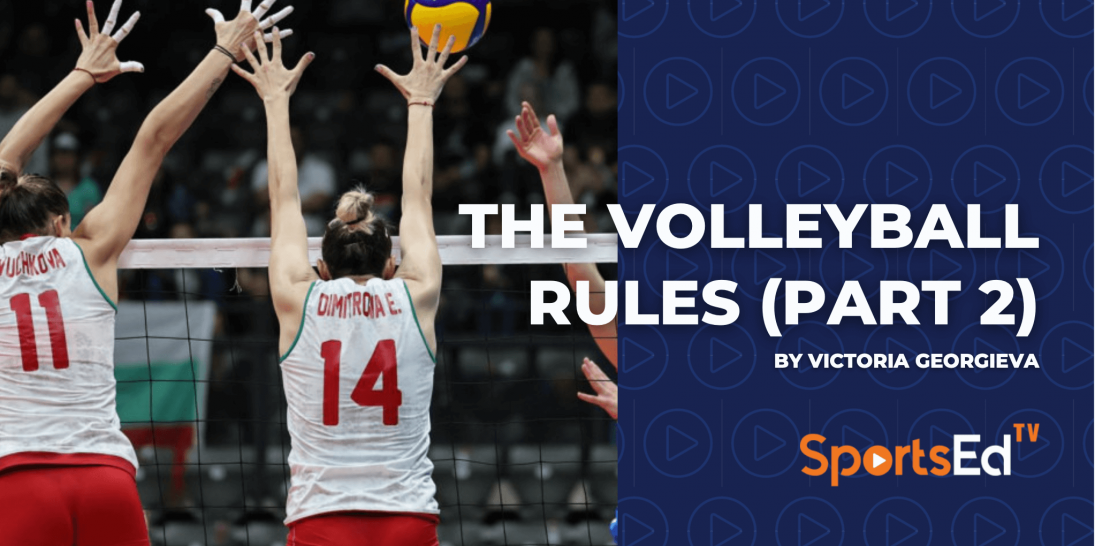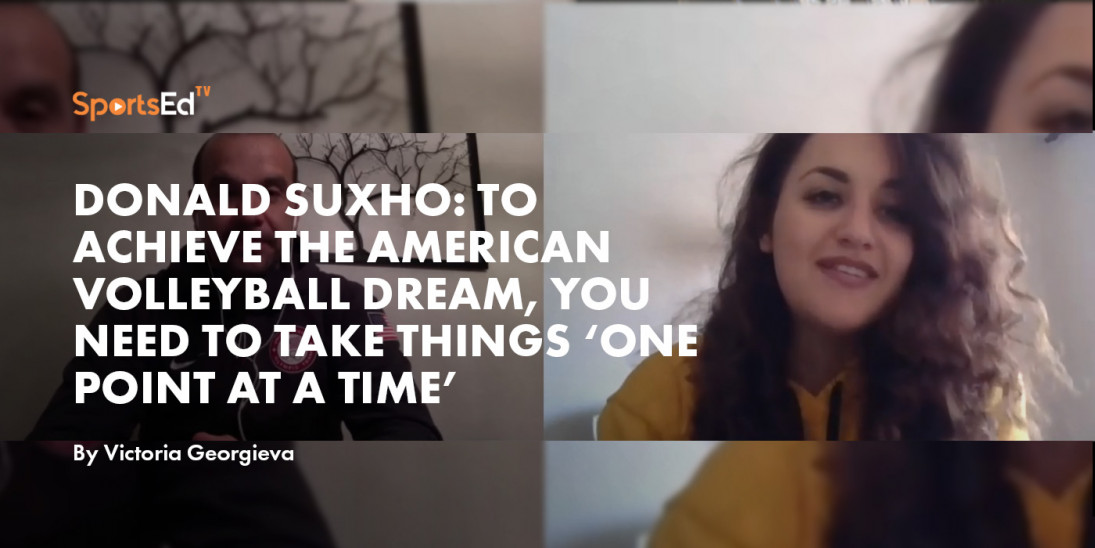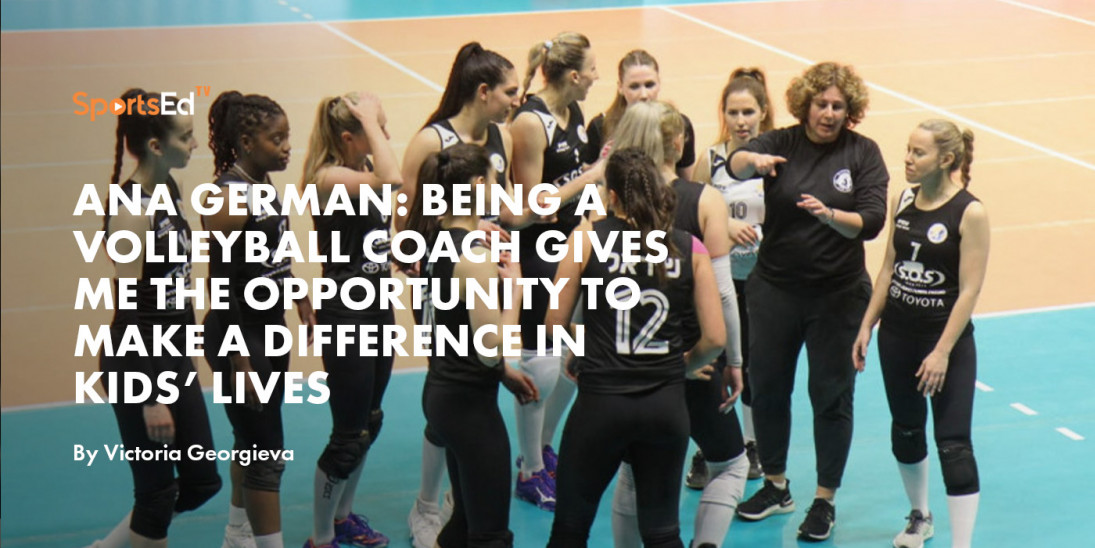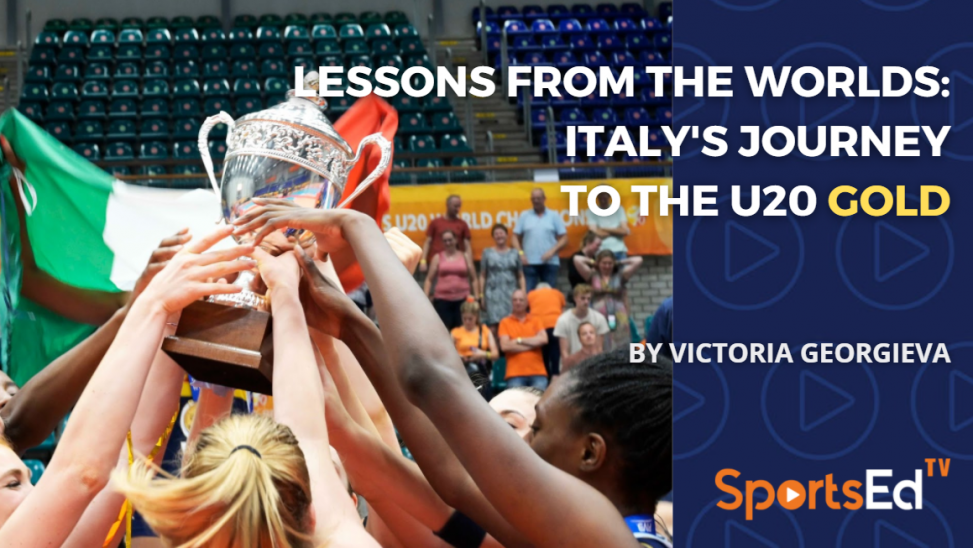Volleyball
Welcome and thanks for visiting...

SportsEdTV Interviewed Maurizia Cacciatori
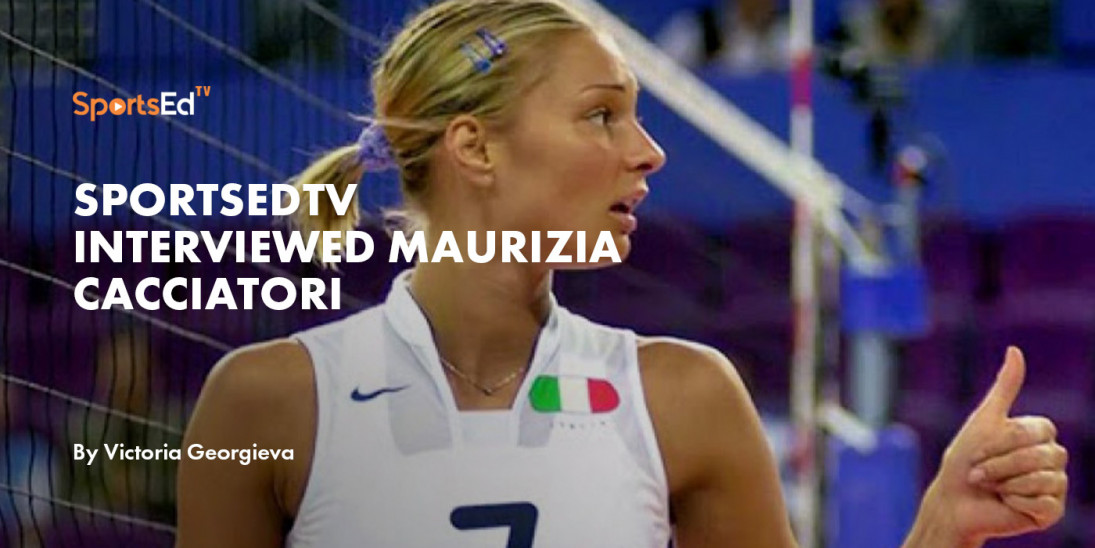
Meeting Maurizia Cacciatori (even only online) was an experience that I will never forget. If you are following my SportsEdTV Volleyball blog posts, you will most probably have noticed that I find inspiration in Volleyball each day, each week, each year. However, there are some days when I think to myself, ‘Ok, that’s it! I will not feel again excited about Volleyball”, the miracle happens. And I get the unbelievable chance to talk to people like Maurizia, who apart from being great champions, are persons who remind me what the real values of Volleyball are.
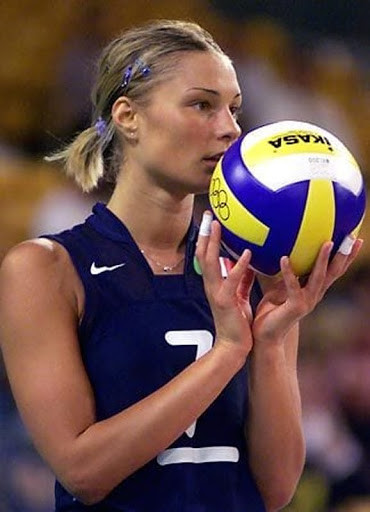
Who is Maurizia Cacciatori?
Here is what we read on Wikipedia:
“Born 6 April 1973, Maurizia is an Italian former volleyball player and sport commentator.
Born in Carrara, Cacciatori has racked up 228 appearances in the Italian national team, winning a gold medal at the 2001 Mediterranean Games and being awarded best setter at the 1998 FIVB Volleyball Women’s World Championship”.
With the national team, Maurizia has to her name also a silver and a bronze medal from the Volleyball European Championships in 2001 and 1999, respectively. Playing in one of the strongest Volleyball leagues, the Italian Superleague, Maurizia has also one several times the Scudetto, Champions Leagues and a CEV Cup.
Nowadays, Cacciatori works as a motivational speaker, conveying her experience through specific speeches for corporate events, conventions and workshops using the sports metaphor.
Off the court, close to the Volleyball
“Even though I have now another style of living, I have a new team at home; the team of my kids”, Mauri, as her friends and Volleyball fans call her, says.
Using the Volleyball topic and metaphors that the sport teaches us, the former setter of the Italian national team is now spreading the Volleyball message to another sectors, working with different companies from different sectors.
“I believe that this is the real heritage that the sport has given me. Of course, there are the trophies and the medals. But the experience of living many years of a specific lifestyle - fighting on the court, sharing with the team, training, showing resilience - this has helped me to develop the soft skills that we use and need all around.”
Volleyball, Maurizia says, has taught her to never stop fighting and to always have an optimistic approach to things.
“Although, I must say that this vision of things is now more realistic. But I think that that things change, and we always have to face them with an attitude of players, of people who never leave the court until the referee blows the final whistle”.

You win the trophies during training, you go to the match only to collect them
Exploring the coaches’ approaches to training, matches, mentality, we cannot not see the great importance that is being put on the preparation processes. Maurizia has summed up what it takes to grab a trophy.
“You win the trophies during training, you go to the match only to collect them. If you want to achieve a goal, you have to start working from day one. I was coached by the exceptional Bernando Rezende, who used to tell us that every day that you train badly, is one day that is lost in order to reach your goal.”
Maurizia also explains the weekly process of training and how players feel it. “It is not only about the game on Sunday. You start on Monday, which for the players is the worst day. You start with the practice, you start walking your path to the goal. How we approach this process, is an attitude that we can have in the family life, in sports, also in business. You can never prepare if there is no preparation that starts from afar.”
Maurizia knows very well what she talks about when it comes to preparation. She was part of the first women’s national team of Italia that took part in Olympic Games. And we all know that preparing for the Olympics is not the same as preparing for the tournament at the end of the year.
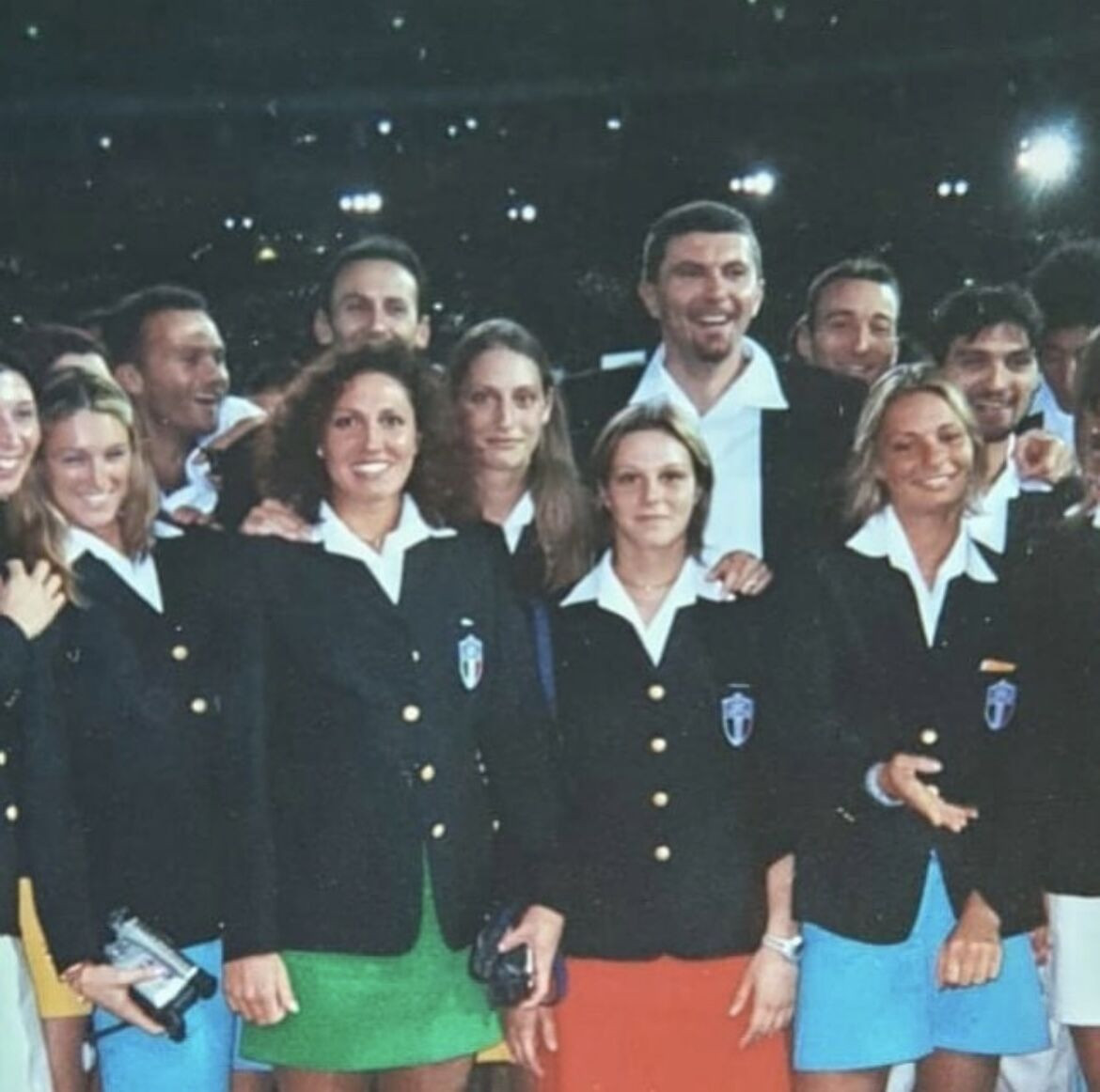
“It takes years, yes. When we qualified, it was the first time when the female national team of Italy has done it. It was incredible, it is an experience that I bring with myself. In the end, they would always talk about the male squad, and eventually, we did it! And when we got to the Olympics, it was something that was more than the qualification itself, it was more about now we are here, too.”
As strange as it might sound to the ears of the younger Volleyball fans nowadays, the female team of Italy did not reach the goal of qualifying easily. It took them years of hard work back in the 90’s.
“It has been a very long process, and it was not only about the technique, because we had it. It was more of a mental process. I think that until that moment, we be quite, giving the impression that everything was fine. Nobody would say anything but at the same time, we had many problems related to emotional collaboration, to words. No one was giving much value to words, to effective communication. There was a lot of silence. If you make a mistake and I am silent, it is a problem. For you. But for me, too. We weren’t understanding that at the moment. But when you work in a company, in a team, you have to communicate. And we went all along this process, because we wanted to. We really wanted to work together and take together this journey.”
Of course, to be able to take this joint journey, one has to first realize there are incorrect approaches to the situation. To give and to receive positive and negative feedback as well.
“The negative feedback is important, too, because there is a construction guide, players shouldn’t be afraid of receiving it. I believe that when there is a winning mentality, the player who is capable of receiving positive and negative feedback, is already one level above. And winning mentality does not mean winning every day, but having the right balance between winning and losing. The players who don’t want to listen, or who cover their ears, or they put their heads in the sand, are the ones who are not going to grow or give anything to the team.
Because it is true that each team is built by different persons but if we think of each one as stand-alone, we will never reach the goal together.”
Does the perfect training exist?
Talking to Mauri, we delve into the topic of training, the key elements of it, and if there is a perfect training.
“Truth to be shared, we have done high level training, quality training, but it is true that we have had difficult times and moments because we have had problems related to the losses or to playing bad. But what I have learned is that the things should be resolved in the pre-game period, not during the match. You need to find solutions before the game because afterwards, when you are playing, everything is happening quickly, and we need to know the things in beforehand.”
Cacciatori says that they (with the national team) have had many difficult trainings,but always entered on the field, knowing that everything that they had to do, they have done it in preparation.
“Afterwards, you could win or lose, but that was important, knowing that you have given it your best. To develop the sense of partners, this is something that goes beyond the titles and the cups. This sense that we need to train always together, solving together these problems, knowing that others will come.”
The value of the team
Training a squad of 12 players with different backgrounds, it might not be the easiest thing for a coach to help them realize they need to work together and explain to them the value of the team.
“In life, everything is trainable. There is nothing that you cannot not train. I was captain, I was the leader and if you ask me about each player that I had played with, I can tell you all the good and the bad parts. As a setter, I have always worked mentally with the players that I had. When you are a setter, it is mandatory to get to know good the persons that you set the ball to. Each person has their ball, high, fast… you have to know it on perfection, but not only the technical part. The mental part, too.
Every person is different, you need to try to search for all these things that can do the good for your team; I have worked with girls that wouldn't like changes, ‘’headstrongs’, who didn't talk, others, who didn't speak Italian; I tried to even speak Chinese. I have always tried to enter into the head of my players. Not all my teammate were super cool to me to be with them outside of the court, but once being on the court,it was super important to have it clear on what should be achieved.”
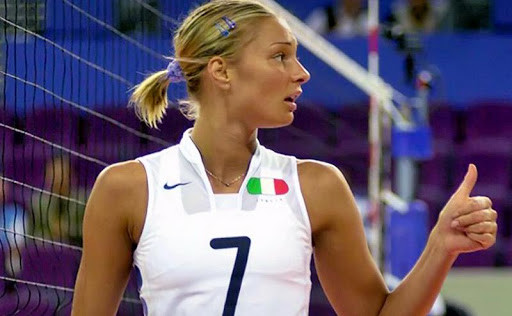
The setter - the heart of the team
Similar thoughts on the role of the setter have been shared with us by Niki Ivanov. And Maurizia agrees with him.
“The setter is the heart of the team. I was looking a lot at the bench, to see what their mood was. If I would see that there were sad people or if I would realize that they weren't calm, I would always try to tell them something good. It seemed to me that it was my responsibility to do it, and to do it good. I wasn't perfect, I wasn't playing all the times perfectly, but this attitude of telling and listening, was part of my main duties.”
Giving a piece of advice to the younger setters that start now, Cacciatori agrees that they would need to work not only on the mandatory part, which is the technique, but on the mental side of the things, too.
“It is double work. Sometimes, you don’t feel like listening to the others, but I was doing it naturally, I was calm. I would realize that it was important ‘to feel’ my team, because if you would realize how was the mood of your colleague, this was an important problem.”
Maurizia is thankful to the many coaches that she had the chance to work with, and who have told her that the setter’s role is wonderful, but difficult.
“I've always been told that the setter's sensitivity wasn't just about how they played the ball.
And this is a lesson that I have always had as something very precise.”
Cacciatori started setting at the age of 17 years old, and says that there were moments when she would feel afraid in the beginning, playing with people who have already become champions.
“Yes, there are setters that are more predisposed and others - no, but this for me is something that a good setter has to have. The empathic attitude.”

Dealing with stress
Maurizia made her professional debut at the age of only 15. In such a delicate age, coping with stress is crucial towards continuing ahead.
“Well, the funniest thing is that I started as an attacker, I was the youngest, a little bit ‘crazy’.
First I played in my city, a familiar place where if you make a mistake, everyone tells you, ‘Ok, it's a small thing.”. My team was a very good one with very well-prepared staff, but I always realized that I was a bit protected. The problem came when I left home, changed my house, changed my whole life. This was the age between 16-17, and it also when I had to change from attacker to setter, becoming a leader. They would always tell me, ‘You have to be a leader’, and I would always think, ‘But what is this a leader? How can I behave?’. Maybe this little crazy part has helped me in this period. I think that we always have to have a crazy side in us. ‘Crazy’ because it is what we are, and we should never suppress it. I'm very self-ironic, I laugh with myself alone. If I'm wrong, I say - okay, that's it, and continue. I don't like being grumpy in all the things I do. Perfection does not exist, looking for it, it is only time-wasting. We are us, with all our imperfections. I also think that a bit of madness
In the context of the setter, gives the unexpected thing, the thing that you cannot control. And in Volley everything has to be different, we have to have this element of surprise.
In life too, you never have to sit and think that it always has to be like this and this. I call it “an unstable balance”
Leaving the game?
With so much stress, important games, playing well, many players think of retiring from the sport even if they still have the potential to play at highest level. Maurizia is not an exception.
“I have had many times that I did not want to continue, I was tired. I wanted a normal life sometimes, I had to give up many parts of my life on a personal level. I have grown up quickly, but I had a lot of passion, and I was looking at my teammates. I didn’t want to disappoint them. The fact of not fighting or setting a bad example was like betraying my companions. If I was in a low mood I would think ‘not now".
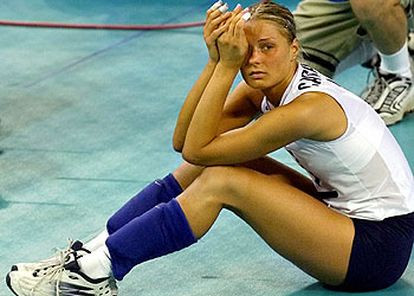
The Vulnerable leader?
When we talk about leadership on the court, we often imagine superheroes that don’t have bad or low moments. But to Mauri, there is another type of leadership.
“I have been a very vulnerable leader. A person who has always asked my colleagues for help. I had never thought that I had all the solutions. It was impossible to have all the solutions, so I preferred to share my doubts.”
Communications is the basis
Communication is the basis, Maurizia, says. And we can do more but agree with her because after years of researches, it is nowadays clear that without proper communication no team nor company could function.
“There comes a point where if they do not understand you well and, if you don’t understand well what you want or what they what, it will be a problem. Before changing this mindset, we used to spend hours training and with an incredible silence. It seemed that it was all perfect, all wonderful. But in the end, when we would play against Cuba, Brazil, Bulgaria, against all of them, in an hour the match was over. So we understood that it was better to say what was not going well. Each one had her flaws. Realizing and talking about this, was the point from where we started to build a team. And you can see, today, the Italian volleyball team is one of the best in the world”
Building up future by delegating
You could see the passion in Maurizia’s eyes when she delves back into these memories.
“We had to start delegating. By teaching the young players that were joining us, we showed them how important the value of the team is, how important the attention is. We became a a team that trained another team, giving value to the younger players.”
Maurizia explains that she believes a lot in this value, and this is an understanding that she has not only about sports, but also in the companies she works with. She is always trying to help people see how important it is to give value to the people who are arriving.
“Do you think that the one that joined last is the last to have a right to speak up? Instead, I think that when the last one that entered the team has the same right to say things. Of course, always with respect and good purpose, but this is how you create the collaboration balance”
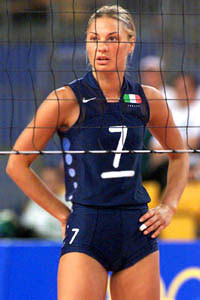
No room for selfishness
Listening to Maurizia, I realize that this sounds very good on paper, but I suppose it is a little bit more difficult when it comes to the reality. The human being is egocentric and sometimes, being unselfish requires a lot of self-work. The role of the coach in such moments, to help their “star athletes” realizing that they need to remain down to earth, is crucial.
“This happened to me, when I started with the national team. I trained with the best in Italy
And there was a player who for me was my idol. I was always thinking that she in that season would have given me a lot of advice, because she had the experience. I dreamed of playing with her, setting the ball to her. She never told me anything. I think that this happened not because she did not want to, but because she did not see it as important as it was to me. This is when, at the end of this season, I decided that in the future, I will do exactly the opposite.”
And this is what she did.
“I think that life is made of phases, phases that open and phases that end. The ability to realize that is important. Ok, you may have been the star, the most important player but there will always come a time when another person who will have your position will have to arrive. It is better to respect this moment with dignity, and to share things and experience. I think I have done this very well with Eleonora Lo Bianco, who has been the setter who came after me. I remember very well that at the time she was afraid of setting the fast ball. I told her that had to do it now. That at that moment she would have a lot of failures, but when the best ball arrived, she would have it trained. She was afraid because she lacked experience, but I have always thought of everything that I have not had, and was trying to give it to her.
Then, when I left Volleyball, I always thought it was a natural process. I couldn't be the team's setter for life either, it's crazy.
Will Volleyball be the Number 1 sport in the future?
If you have been our Volleyball interviews, you will know that the top experts in our sport, believe that Volleyball, especially for women, will become the Number 1 sport in the future. Does Maurizia agree to that statement?
"I hope that Volleyball will be the number 1 sport, of course. To me, Volleyball is the most beautiful sport, and it has given me everything. But I'm a big fan of all sports, I like everything, I like to see people's attention in all sports. I would like to see an overall expansion of all kind of sports and more people realize that investing in the value of sports is something very important.
